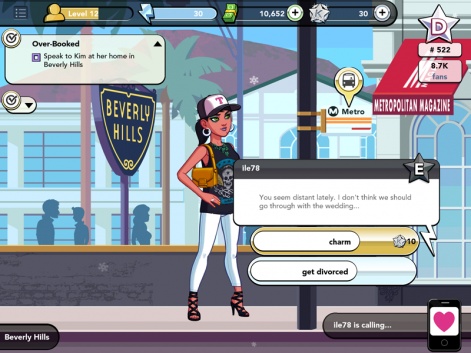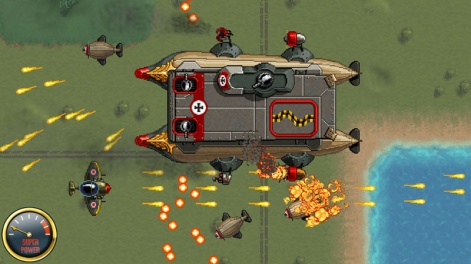When the app stores first opened their doors, it made sense for developers to release as many games as they could. People spoke wisely about having a portfolio or network of games.
Conversely, the rise of games-as-a-service demands a less is more approach, in which it makes financial sense for companies to focus hard on their most successful products.
A great example of this is Supercell killing its in-soft-launch-match-3 Spooky Pop.
So, we asked our Mavens
Is mobile now all about quality over quantity, or is there still a place for a portfolio of releases?

I think there's rather a focus on performance over quantity.
Today there is a lot less value in a large portfolio compared to a small one that performs well. It is hard to strike gold, so when it does happen, shifting your resources towards that project makes a lot of sense.
Reduced portfolios also has to do with the added complexity of live ops. You can't do a major success today as a fire-and-forget type project. You need to allocate significant resources to keep a success running, and that's going to dig in to how many projects any team can handle.
One interesting aspect of this though is the poor performance of Gameloft's 2014 catalogue.
Apparently the company is going to tackle this with an increase in launches during this year, so it should be interesting to follow if that solves the problems...

Adam has been in the mobile game industry since 2007, creating games independently. He's since grown into a full 50+ person studio manager.
Recently he's taken a position at Wooga in Berlin to sharpen his design skills and work with the world's best to create amazing, well-crafted products onto the mobile marketplace.
Yes, mobile is now all about quality over quantity. Marketing costs are always rising and the cost of a flop is incredibly high.
Instead of taking multi-million dollar bets based on instinct, companies must use soft launches and analytics to derive realistic estimates of how a game will perform.
Portfolio management is a debate about how wide in genre you wish to go.Adam Tefler
Developers should only bet on games that are going to succeed. As a developer with $1 million in marketing budget, it is far better to spend that $1 million on one sole title that performs well, than to spread across multiple titles where only one or two of them perform.
Beyond marketing there's also the cost of games-as-a-service and customer care. No developer can afford to run that many projects in parallel. It is better to kill off projects early that aren't going to sustain substantial revenue than handle the massive upkeep costs of each game.
Portfolio management is a debate about how wide in genre you wish to go.
I'd just point to Wooga's Hit Filter. Portfolio management is more about a structured filter to ensure the games that reach soft launch are truly fit for the market.
Cast a wide top funnel for ideas to ensure you are not focusing too thinly on a proven set of genres. The app stores have clearly dominant genres now, but we all know this will change.

John is co-founder of PR and marketing company Big Ideas Machine. Also an all-round nice guy...
Thomas is right about performance dictating focus, with the result that quality has generally risen.
I think there are many factors/pressures on developers, which has resulted in an overall rise in quality in games on the stores.
- Fickle consumers + more competition = better quality. Simply put, with so many me-too games on the stores, quality and polish is an effective way to differentiate your game.
- Quality is more defensible (for a time). As put very well by Aaron Loeb of Kabam, investing in high-quality 3D graphics lets them create games that take much longer to copy, and therefore gives them a defensible market position for as long as possible. We saw Flappy Bird clones appear in a matter of days precisely because it didn't matter what the game was about or looked like.
- Changes by Apple over time has made cross-promotion and cross-selling much harder. We've seen the rise and fall of offer walls and cross-game currency, which have diminished the halo-effect of launching a portfolio of games in order to maximise the cross-sell.
- Successful F2P means high quality is essential. This could mean graphical quality, super-polished gameplay, or regular updates to drive engagement (or a mixture of all of these) - the point being that building a really successful F2P game requires a high degree of ongoing investment and constant refinement and improvement. And as your game is improved, so will the competitions games, and also the expectations of your community - meaning that there is always pressure to improve quality.
- Apple and Google as the gatekeepers are demanding it. We all know from experience and countless anecdotes, the app stores will promote the best or most unique apps on the stores. As this is still a really important path to downloads, it means that to have a change of getting featured your game needs to be really polished.
I could go on. The point is, that as any medium evolves, so too does the quality of the product, in order to match rising consumer expectations.
The Supercell decision was nothing at all to do with quality; it was about how much money the game was making.
Rising CPIs, driven by a limited amount of advertising inventory and competitive bidding by financially strong competitors, is driving mobile to the same place the triple-A video game industry has been for some time... fewer (more expensive to build) titles, most based on successful existing franchises.
As development and marketing budgets climb, developers become more risk-adverse.
Where a portfolio of releases may make sense is (oddly) for smaller, independent developers.
The Facebook “step function” (the CPI increases with volume) results in a lower cost of player acquisition if you drive a few players to a number of titles, than driving many to one title.

Even normal organics will give you more players in aggregate if you are spreading this over multiple titles. You see this tactic executed by some of the smaller puzzle, strategy and casino game developers.
I also believe you will see more brand partnerships, given the success of the Kardashian game.
I pity any of the industry professionals who do not read this week's Pocket Gamer Mobile Mavens: Wow and the quality of the commentary above is outstanding.
What is "quality?" It's my feeling that "quality" needs definition. If you ask the old sculptor how to create a high-quality horse, the reply might be, "Chip away anything that isn't a high-quality horse." Um, how do you budget that, exactly?

If we picture "quality" as a Heaviside step function, with the step being, "The point at which the profit from the investment is maximized." (Anybody who thinks quality is a more gentle distribution also believes in half-pregnancy.)
Using that Heaviside definition of quality, and observing the patterns, trends, and fads of better-established interactive entertainment markets ...
You are competing in a crowded genre? Quality! Quality means money. The old industry saying goes, "'Triple-A' stands for AAAll the money that you're going to spend."
But ...
But ...
What if you hit'em where they ain't?!
Triple-A stands for AAAll the money that you're going to spend.Scott Foe
There is also the perilous path of genre-leadership. Blue Ocean, baby. Make something that nobody has made before. If your something-that-nobody-has-made-before resonates, well, low quality isn't a concern on account of a paucity of competition.
And genre-leadership is anybody's game, quality be damned. One person in a garage ... a rouge coder at Sell Your Souls Studios ... the entrepreneur who just raised Series Seed ... if you think that every genre has been tried at market, well, that's the same exact thing that the people who didn't invent Minecraft thought.
But ...
But ...
Genre-leadership won't save you from weak entertainment property development. Entertainment property is legally protectable. Sounds, stories, symbols, characters, and themes are legally protectable. If you can provide compelling genre-leadership, strong entertainment property, and low quality, you can still win for the future.
And before you grouse about effective cost per customer acquisition, remember: The reason they call it the "newspaper" is because they talk about what's "new." Otherwise, they would call it the "betterpaper."
High quality or low, you can create strong entertainment property, or you can share your profits with Kim Kardashian.

John is co-founder of PR and marketing company Big Ideas Machine. Also an all-round nice guy...
Scott, are you not conflating 'quality' with 'successful'?
The concept of something being "high quality" bestows an understanding of value.John Ozimek
I think we all have an innate appreciation of what' quality' is, in terms of aesthetic beauty, craftsmanship, polish. Yes, all of these are subjective, but there is still a common understanding of what these values translate into when you are presented with a product.
If we want to be really simplistic, then yes, 'quality' in reality means 'money', as the understood route to creating a product of 'quality' means an increased investment of some kind - typically time - and as we all know, time is money :-)
What's the difference between a Ford Focus and a Volvo? Both are made by the same company, both share the majority of their components - but with the addition of better materials and greater refinement, a car that is viewed to be better quality is created, which is then sold for more money because of the greater perceived value that sense of quality bestows.
As a gamer, probably 99% of all the games I have ever played have been derivative - but creating a quality product means that the experience of the game gives me a great experience regardless of how hackneyed and old the idea is.

Has Monument Valley been universally lauded because it is truly original, or because everyone agrees to the quality of the execution and the experience it delivers?
The concept of something being "high quality" bestows an understanding of value on something - whatever that value is measured in.
To my mind, it simply means that enough time, thought and effort has gone into it that my appreciation and enjoyment subsequently becomes much greater - with an almost universal response being that people are happy to pay more for something when they perceive it to be of better quality.

Quality is very subjective and I would argue there is no universal view of what high quality is, it's very dependent on context and who the viewer is.
Take fine arts for example. Some people really appreciate modern abstract art and value it highly (like a lonely urinal or a dot on a canvas), while other people think it's nonsense and just lack of talent.
Same thing with food. Some people thinks a McDonalds hamburger is lower quality food than the "dead ants on a raw shrimp" Noma serves in Tokyo, and some people would argue that serving ants and raw shrimp is barely food at all.
I would argue there is no universal view of what high quality is.Patrick Liu
This subjective view also goes for games, and as entertainment it has both a functional and an aesthetic angle which makes it even more complex.
If you make a really hardcore FPS with traditional controls for a tablet and aiming for a casual audience it's actually a shit game in that context. Which game is higher quality of Monument Valley and Battlefield 4?
One could argue that Battlefield 4 certainly has much higher production value (that's easy to appreciate for most people), and you can also argue that Monument Valley has higher artistic and innovative value (but perhaps too artsy for most people).
It all comes down to making business out of entertainment (same with music and movies), and whether we like it or not, the lowest common denominator would be making a successful business (in the context of this particular question).

A games programmer before joining Sony’s early PlayStation team in 1994, he then founded developer Pure Entertainment, which IPO’d and launched a free-to-play online gaming service way back in 1999.
He was also a director of pioneering motion gaming startup In2Games, which was sold to a US group in 2008.
Along the way, he’s been a corporate VP, troubleshooter, and non-exec to a variety of companies and investors in and around the games sector.
Harry was European CEO of Marvelous AQL, a Japanese developer and publisher of social, mobile and console games, known for console games like No More Heroes and Harvest Moon, but now highly successful in the free-to-play mobile and web space in Japan and Asia.
Harry is CEO of Magicave.
'Quality' is entirely subjective and also entirely dependent on context. Is The Godfather a higher quality movie than Transformers? I'd say yes, even though the robots are nowhere near as realistic.
So with games - arguably Call of Duty games are higher quality than Clash of Clans by many, but not all, criteria.
There's the danger for those of us coming from the console business to conflate 'quality' with '3D graphical fidelity' which the top grossing charts seem to suggest is a big mistake on mobile. We've certainly launched games of incredible 'quality' (graphics and gameplay) but which made a lot less money than others with simpler production values but which kept players engaged for longer.
The sheer number of titles on mobile means that no company can thrive by playing a numbers game.Harry Holmwood
However, the sheer number of titles on mobile means that no company can thrive by playing a numbers game. Even if I release 100 games a year, there are more than that launching every day so my 'scale' is just an illusion. Of course, 100 games of good enough quality improves my chances of success, but that way I'm just increasing the number of bets I make, rather than betting smarter.
I think it has _always_ been about quality. The last few years have probably seen us add monetization to our list of 'must haves' in games, and the emergence of certain techniques which encourage people to keep playing and hopefully spending, but really, the way to succeed is to make games people want to play and keep on playing.
The best approach seems to be to identify those fundamentals that will make your game succeed - most of which are already out there in the market to be learned from - but then to find your own niche/uniqueness within those loose constraints.
Every successful title I can think of, from Minecraft and Clash of Clans to Candy Crush and Puzzle & Dragons is basically standing on the shoulders of the giants of the past, but doing so in a way that adds something new and special to the market.

Oscar Clark has been a pioneer in online, mobile, and console social games services since 1998. He is also author of the book, Games As A Service – How Free To Play Design Can Make Better Games.
The trouble as always is the reality of game development is that it can't just be isolated to quality or quantity. There are so many risks in this hit driven business.
Right now the biggest difficulty I still believe is discovery. I know a lot of people don't like that term but I think it's useful. Players come across our games and decide if they want it. The more effectively we communicate the more likely their discovery. Whether they choose to act on that discovery comes down to the attractiveness of the game idea. If that idea comes from a team, or brand or style we are familiar with then all the better.
Sadly, however, only a small number of brands or teams carry enough recognition value for this to be meaningful. Especially when there are so many other free games to choose from that players end up paralyzed by too much choice.
Quality always matters but your audience matters most.Oscar Clark
The cost of acquisition is now pretty high and at last developers understand the value of retention. Keeping players in your game and being able to generate revenues from in-app purchases and advertising has resoundingly proven to out-perform the pay-up front model. But its not without its concerns.
A lot of designers still associate F2P with negative experiences and this is not helped by the reality that over the last 2 years we have seen hardly any innovation in the game design of F2P games. Even I worry about how this is affecting players expectations.
We have seen the percentage of payers in such games drop from 10% to 2%. Those numbers are highly deceptive however. As F2P has become more accepted and with ever more content using the model its only natural that this number will decline.
The portfolio approach of having multiple games has the advantage of spreading the risk as well as offering your team something fresh regularly. It appeals to the creativity of the team making the game, but there are risks that you alienate your fans as much as you increase the value of your brand.
Quality always matters but your audience matters most. How do you build and sustain an audience who will stay with you and importantly tell others to do so too?
That's going to be a combination of talent, quality and a fanatical authentic focus on satisfying your fan base. That's why I still firmly believe that Games-As-A-Service is an essential mindset for developers.
BUT ... the numbers game may work better for smaller developers than larger ones. By smaller I mean small or no marketing budget.
With decent ASO you would see some organic traffic per title. As I mentioned Facebook will give you lower CPI at low volume.
I totally agree on the Blue Oceans. Go where they aren’t.
But there are even small developers using the “many titles” trick on typical casino games and getting it to work. Toochill comes to mind.
We should not discuss "quality" again as I am quite sure everyone here knows what we believe a quality game is. We can discuss about the quantity, of course.
I know too many smaller studios that have found a way to make money and that's by releasing hundreds of titles. So they are flooding the app stores with titles just a little bit rebranded with a new character, even only new logo and name, new graphics in the slot machine, endless runner, jigsaw puzzle, Sudoku, etc.
This numbers game can only be won by small devs or a one-man-show. They don't have the huge costs and they are happy with hundreds or thousands of downloads per app per store. Just to be clear, they don't see those games as game-as-a-service. They throw hundreds of titles against the wall and hope one or some stick.
They are fast on new trends but most of them would never think about updating their titles. A big plus for them is also the power of cross promotion.

If you have only a very limited amount of titles in your portfolio, you can't do real great cross promotion which doesn't cost a penny. A big minus for them is that the gatekeeper like Apple, Google and Microsoft will not promote those titles as they are not unique or anything special.
On the other site you have all those big dinosaurs with one or two big hits that spend millions and millions in UA to get the titles up the charts, and spend even more in keeping the games running as a game-as-a-service.
You need a lot of money to play in that league and you need one title that fits the audience. Getting cloned is very easy those days (sorry, you don't call it cloning it anymore. You can get inspired!) The market is flooded with those clones so even the "quality" games will have a hard life in the same genre also if they spend millions in UA.
We at HandyGames stay very agile and go our own way.Christopher Kassulke
Most of the older dinosaurs have titles that were released over 12 months ago but still doing great downloads and revenues. Check out Gameloft. They just announced their figures and a huge part of the revenues come from titles older than a year! Also at HandyGames we have those evergreens. Titles like Clouds&Sheep, Townsmen and others still generate significant revenues.
So what is the solution? I think it's been mentioned several times. It's about innovation and my big blue oceans. Blue oceans don't have to be only new platforms like wearables, TV, Windows Phone 8, etc but also new not-so-crowded genres.
We at HandyGames stay very agile and go our own way - so let's see what other new hot topics might come up.
Another possibility not mentioned yet by the Mavens is going cross-platform and beyond mobile! We just announced that we will release our blockbuster Aces of the Luftwaffe on PS4. I am so excited about it and I know we have so much more to come.
I like to sail on all those new blue oceans.

























